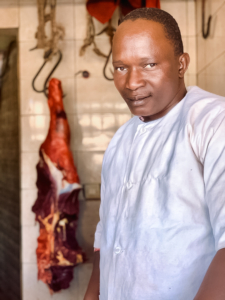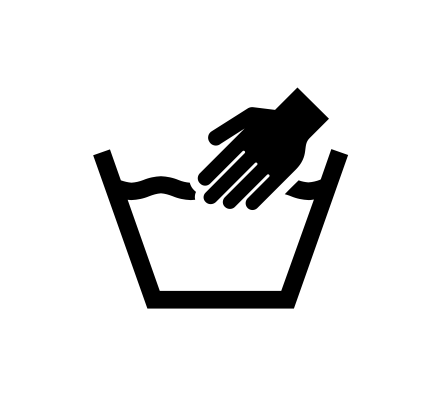Existing behavioral data
What factors influence zoonotic disease behaviors?

A variety of factors can influence behaviors. Understanding what makes people behave in a certain way helps you identify the best ways to change behavior through risk communication, community engagement, or policy interventions. This is why we collect behavioral data – to help people know what behaviors create risk and what behaviors protect them from zoonotic diseases, and to motivate them to perform the behaviors.
This type of research can take the form of large research studies or rapid, ongoing behavioral surveillance through surveys, rapid qualitative data collection, social media listening, or other methodologies. Here we give an overview of selected themes from existing research, then share the study reports that summarize findings in specific settings.
How were themes identified?
The ZBRA project at Johns Hopkins Center for Communication Programs analyzed qualitative data and identified cross-cutting trends in the behaviors and attitudes of different populations in sub-Saharan Africa, where the burden of zoonotic diseases is high. To begin, findings were analyzed from five qualitative studies on risk and prevention behaviors and attitudes related to zoonotic diseases. These studies collected data using similar research questions, guides, and lines of questioning. Each study produced many context-specific insights that can be found in the reports linked from each page: Côte d’Ivoire, Mali, Senegal, Guinea, and Niger.
Five transversal themes appeared throughout discussions in every country and in relation to multiple behaviors and attitudes.
Value of animals
Animals represent both financial and emotional value. Some risk behaviors, like living with animals, are driven by a desire to protect this asset.
“We think of them [animals] as our children. When we’re away, we call home, asking how our sheep are doing before even asking about our family.”
Sheep breeder
Dakar, Senegal
Customs
Many preventive behaviors happen out of habit. Lack of routine or a prioritization of traditional knowledge over risk factors can result in non-adherence to risk-reducing practices.
“The question related to gloves though, no amount of raising awareness will get them to wear gloves. Even if you brought gloves to their homes, it would only work for a short amount of time, they will eventually stop using them.”
Hunter
Bamako, Mali
Time
Lack of time is cited as a reason not to follow many preventive behaviors – additional steps to clean surfaces, treat animal products before consumption, or don protective clothing reduces time spent working, impacting income sources, or cannot be justified for behaviors perceived to be low-risk.
“There are people there who are very rushed at the slaughterhouse… The knife cuts him, but he doesn’t feel the pain at the moment. The blood flows on the meat but he keeps on working. Normally, for health reasons he should cover it before working. But for him, he is obliged to do his job.”
Community Member
N’zerekore, Guinea
Affordability and Access
Financial restraints are a major factor in adopting preventive behaviors. Even when people were knowledgeable about the risks associated with certain practices, lack of financial resources or access to supplies or services was a barrier.
“If we had gloves, it would be easy to wear them, but if we have to go buy them ourselves, it will be more difficult.”
Cow breeder
Niamey, Niger
Self-diagnosis and treatment
Related to affordability, at-home care is widely practiced in the treatment of both animals and humans. People in different geographies have different levels of confidence in diagnosing and treating animals and humans, but those who discussed the practice were not put off by lack of medical training.
“In general, as he said, we try local pharmacies or traditional medicine first, and when that doesn’t work, we go to the hospital.”
Animal raiser
Bouaké, Côte d’Ivoire

Cohabitation with animals
“Even if you keep an enclosure behind your house, if you fall asleep, after an hour you’ll find that they [a thief] has opened the enclosure and taken off with your animals.” Slaughterhouse worker, Yanfolila, Mali

Ritual washing of the dead
“Because where we’re from, in Baoulé country, it’s true that there was an epidemic, but people at least go to the trouble of washing a body before burying it. Because it’s their last experience with the mortal world.” Animal raiser, Bouaké, Côte d’Ivoire

Disposal of dead animals
“We don’t have the habit or the time to do all that. Most often, we take [the animal] just behind the houses in the woods and it serves as a feast for the dogs and other carnivores who take care of it.” Cow raisers, Bamako, Mali

Utilization of vet care
“Because we see some products that the veterinarian uses, we use them also…or still when I call the veterinarian and he doesn’t come, I take care of my animal.” Small ruminants raiser, Dakar, Senegal

Cooking meat thoroughly
“This is a way to avoid illness; poorly cooked meat can put you at risk of getting sick." Community member, N’zerekore, Guinea

Consumption of bushmeat
“…bushmeat [comes from animals which] eat vegetation and things from the wild, so it’s organic. That’s it, it’s natural. The animals we consume…we give them [inorganic] products and things, so we find that it’s better to consume what comes from the wild, from a natural environment.” Animal raiser, Bouaké, Côte d’Ivoire

Eat fruit partially consumed by an animal
“It’s that animals know the best, sweetest fruit. Fruit that an animal has eaten a bit out of, when I find it, I cut the part that’s been touched, I wash it a bit and then I eat the rest.” Animal raiser, Korhogo, Côte d’Ivoire

Eating meat from sick animals
“It's not easy in the village because there are some families who can go one to two months without eating meat and the children are short of protein and if such an opportunity arises, they will not fail to indulge their hunger.” Animal handler, N'zerekore, Guinea

Observation of basic hygiene/sanitation practices
“Butchers who sell meat do not disinfect their knives before using them. He may still sharpen it or wash it, but he never disinfects it.” Small ruminants raiser, Bamako, Mali

Wearing PPE
“Even butchers who slaughter and sell meat, you never see them wear gloves.” Cow raisers, Kédougou, Senegal
Study reports
In this table, you can find reports and papers from research conducted on One Health topics in selected Global Health Security Agenda countries.
ZBRA Reports
*: To access the report in French, click on the Français link at the top of the page and navigate back to the table.
ZBRA Reports FR
* : Pour accéder au rapport en anglais, cliquez sur le lien anglais en haut de la page et revenez au tableau.



